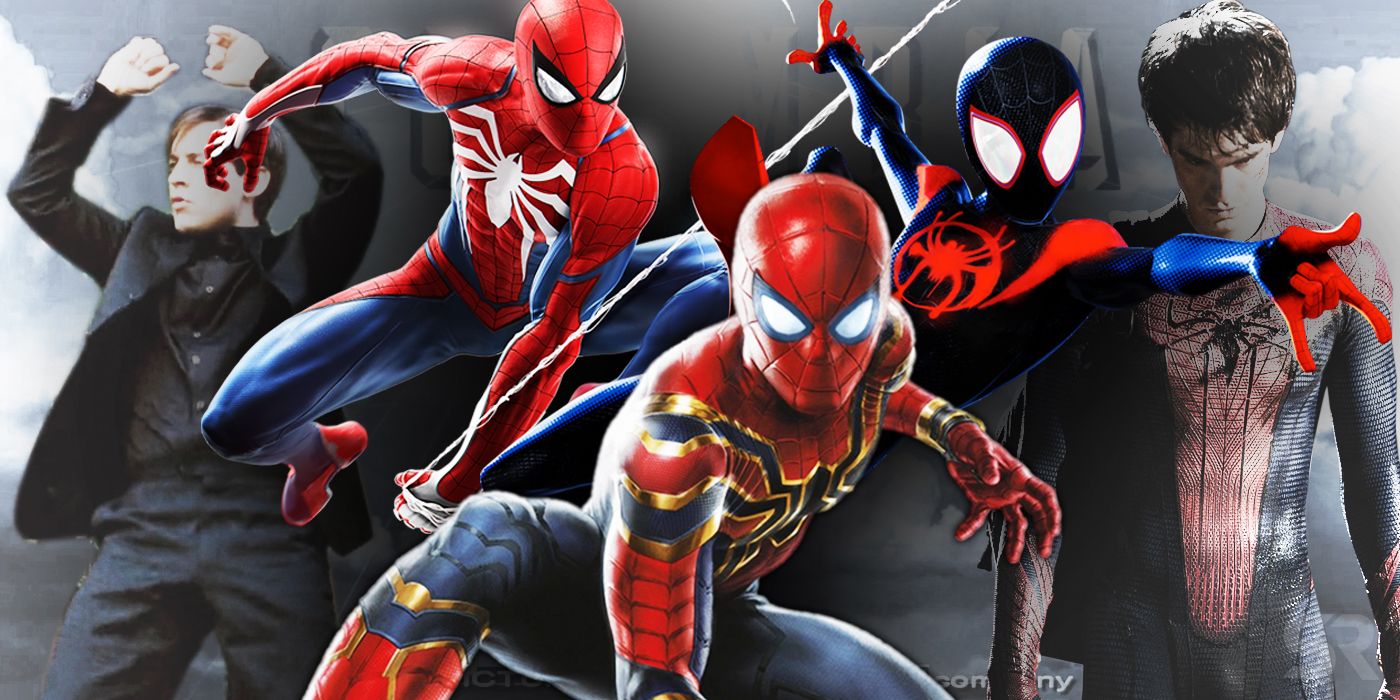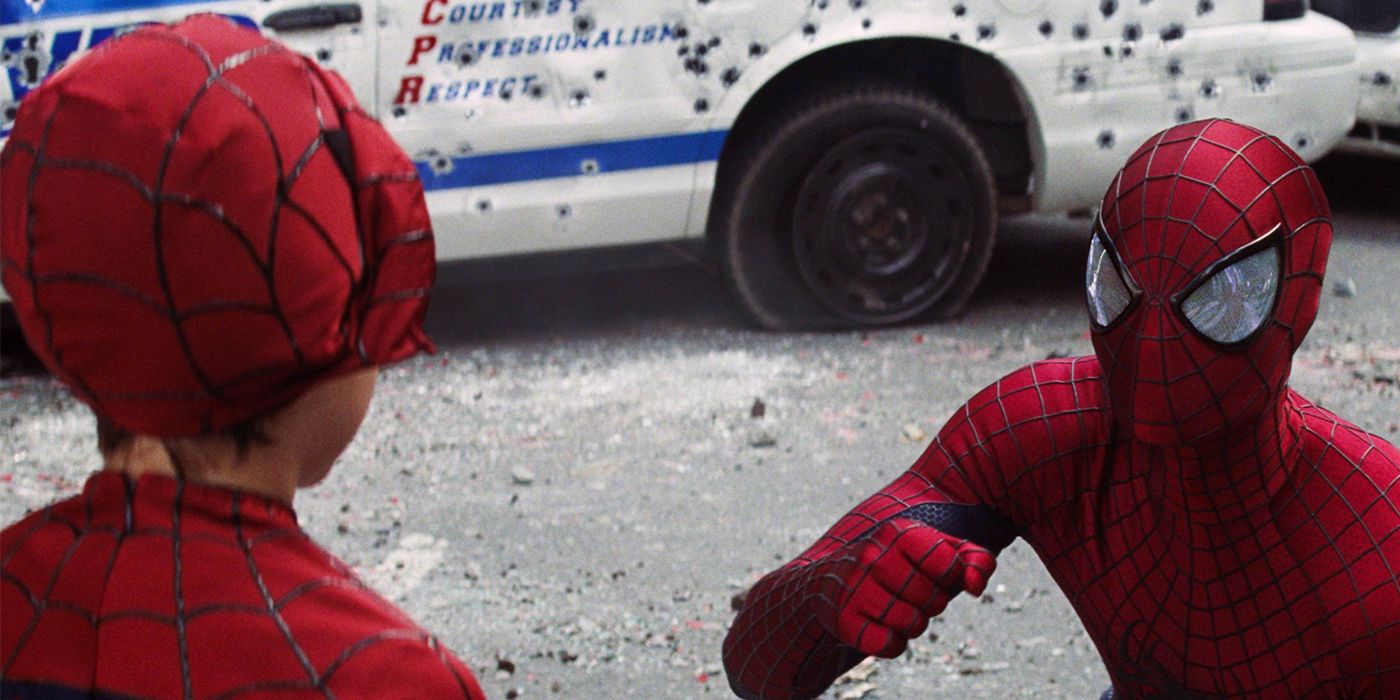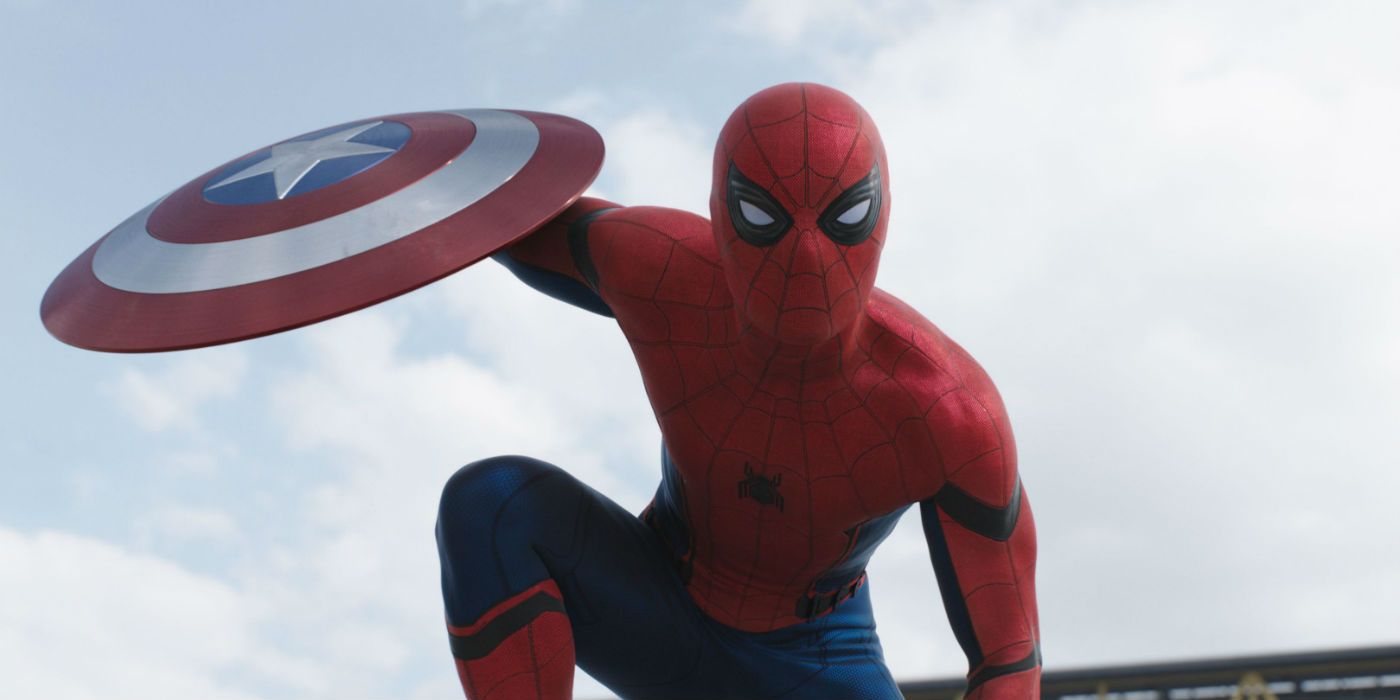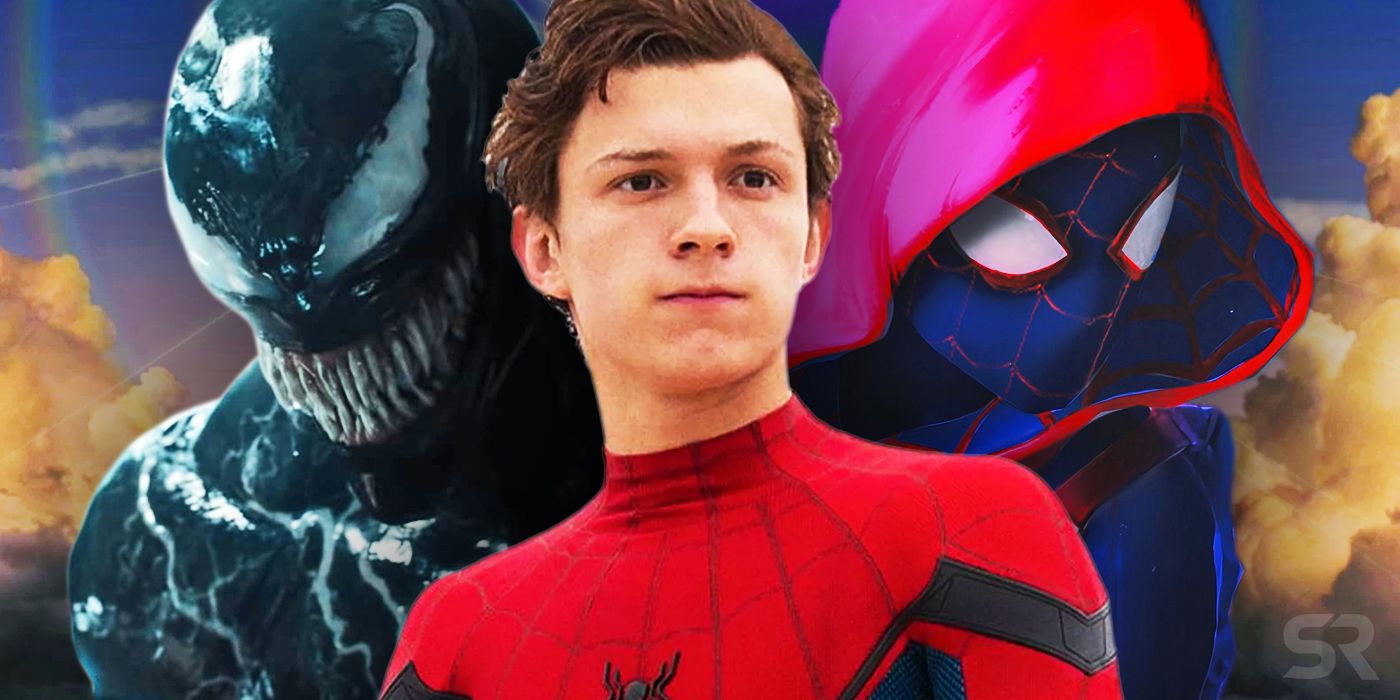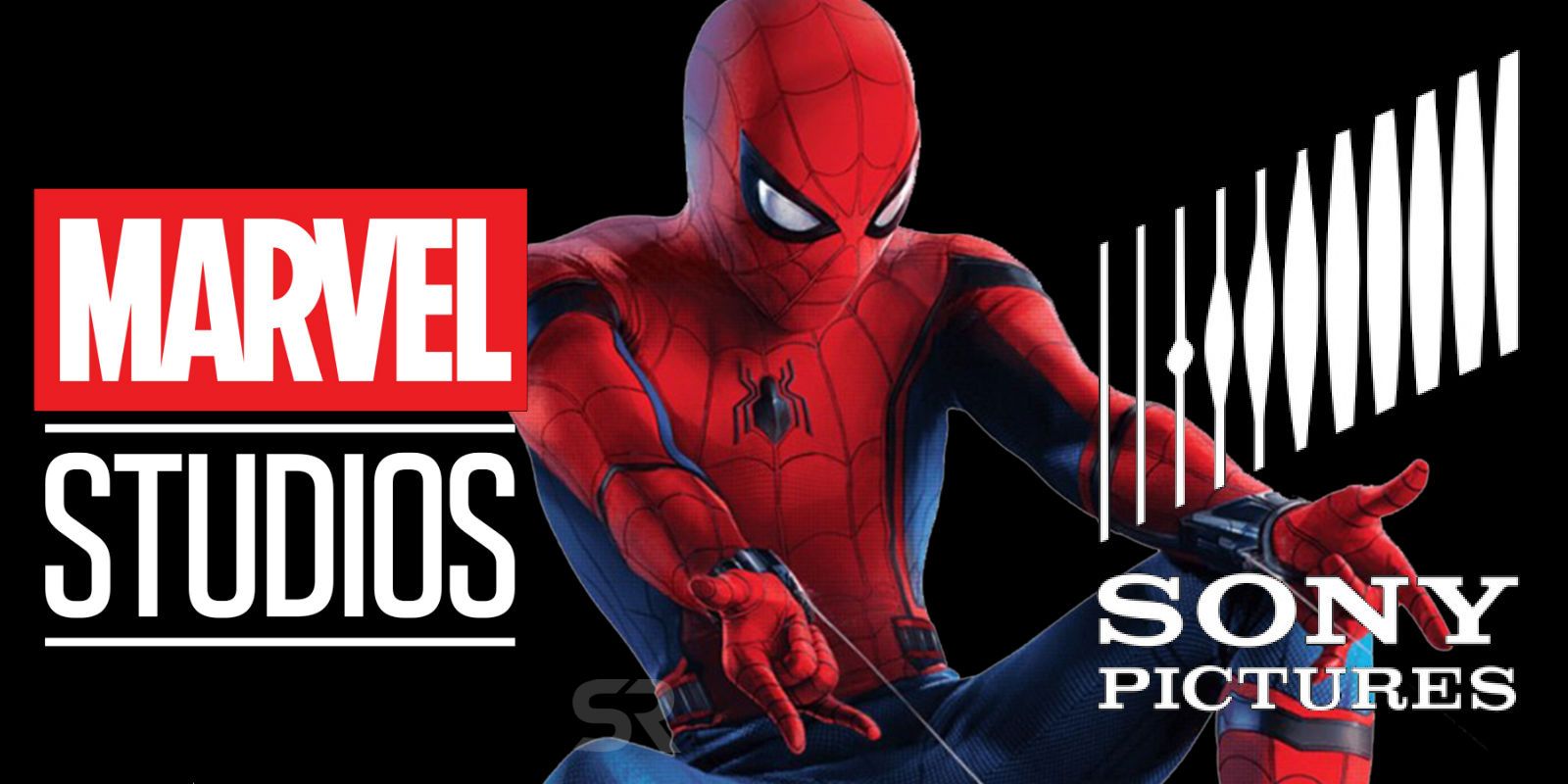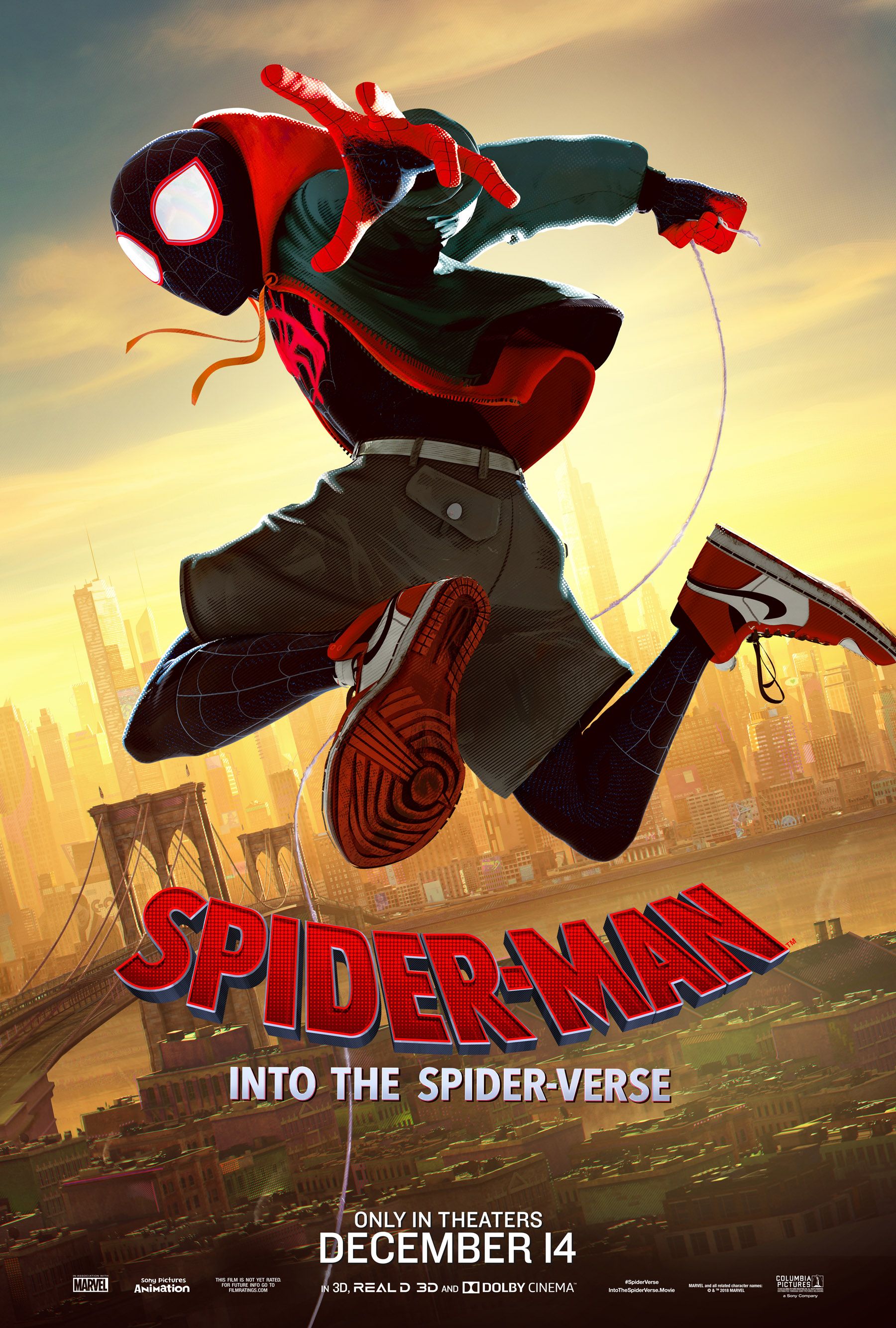In 2014, Sony ruined Spider-Man, but over the past four years they've completely fixed the character and the brand. There was a point not many years ago when the idea of more of the web-slinger was a nauseating concept, the most popular superhero in the world an emblem of corporate meddling. Now, in 2018 alone, there's been three movies centered on a wide range of Spider-Man characters, a record-breaking video game, and so much more to come. How did Sony fix Spidey?
The whole notion of Sony owning the movie rights to Spider-Man is somewhat archaic. They acquired them in the late-1990s when Marvel ran a literal going-out-of-business sale, and as long as they make a movie every five years, will keep ahold of them. That's made Spider-Man movies often less exercises in bringing the hero to the big screen in the best way possible and more high-stakes keepaway, with Sony holding one of Marvel (now part of Disney's) favorite toys in near perpetuity.
Related: How Marvel Studios Really Works
This led to a lot of bad decisions, and in an era where Marvel and DC are both enacting sprawling shared universes that pit long-standing icons against lesser-known discoveries (the trailers for the last two Avengers movies have elicited excitement from the promise of a team up with the Guardians of the Galaxy and Ant-Man respectively), caused many fans to demand Spider-Man's rights go back to the House of Ideas. However, it turns out that may not actually have been the best solution. Following utter disaster in the early 2010s, Sony has managed to turn Spider-Man around. Here's how it happened.
- This Page: How Sony Slowly Ruined Spider-Man
- Page 2: How Sony Capitalized On The MCU Boost
- Page 3: Can Sony Keep Up The Spider-Man Momentum?
How Sony Slowly Ruined Spider-Man
You can spot fundamental flaws in Spider-Man from the very start of the deal - Sony's use of the PlayStation 2 font for Spider-Man's logo reeks of corporate synergy - but the rot really started to set in with Spider-Man 3. During development, there was a key production divide - producer Avi Arad wanted Venom as a villain, director Sam Raimi Sandman and Green Goblin - leading to an overstuffed, ill-focused film. While blame doesn't fall fully on either side (even without Venom, Spider-Man 3 is still questionable), it showcased a lack of creative drive. This left behind a quagmire for Spider-Man 4 to wade through, with even more villains considered and thrown out, before the entire project stalled not due to any desire to avoid the mistakes of the past, but those rights; Sony had to make a movie every five years to keep control of the character, and the 2012 expiry was approaching.
This is where The Amazing Spider-Man came in. Conceived in 2010 as a low-budget, character-focused take on the character that mixed the proven Dark Knight realism and the teenage stylings of Twilight (500 Days of Summer's Marc Webb was hired to direct), it promised a totally new imagining of Spider-Man. Andrew Garfield was a cool Peter Parker whose focus was as much on high school and Emma Stone's Gwen Stacy as it was fighting supervillains. However, that track wasn't followed. At some point, the mystery over the disappearance of Peter's parents became the predominant thread, and then the success of Avatar made Sony chase 3D. Eventually, the increased scale of the project pushed up the budget and its mainstream angling; it was a mild-grit retelling of what Raimi had done ten years earlier.
However, the real damage done to The Amazing Spider-Man franchise was by a movie that released just a couple of months before it debuted. The Avengers changed the game, with MCU Phase 1 suddenly viewed as the model for building a viable long-term franchise. And so for the sequel, Sony aimed to jump-start its own competing shared universe; a movie already taking on a lot - full arcs for Electro and Green Goblin, as well as an adaptation of The Night Gwen Stacy Died - now had to set up Sinister Six (including Rhino, Doc Ock and Vulture teases) and make Oscorp a viable S.H.I.E.L.D. The result was a terrible film that managed to smash all of its spinning plates; the villains were compared to Schumacher's Batman films, Gwen's death elicited laughs rather than tears, and the notion of a shared universe was a cold tease. With bad reviews and worse box office performance than a time travel X-Men story and a comedy about a talking raccoon, The Amazing Spider-Man 2 was a resounding failure. After half-a-decade of muddled ideas, everybody soured on the very idea of Spider-Man.
Related: Every Superhero That Was Supposed To Release In 2018 (But Didn't)
The final nail was the 2014 email leak, which revealed that planning for the Amazing Spider-Man shared universe was a mess, with clones expected in the direct sequels and an Aunt May prequel pushed. All of Sony came across poorly, but the handling of its major franchise was the sorest point; the executives were people who only vaguely understood Spider-Man or what made him beloved, and had a cynical view on how to transfer that into a profit margin. At this point four years ago, Peter Parker was dead.
Page 2 of 2: How Sony Capitalized On The MCU Boost
The MCU Effect On Spider-Man
But the email leaks also revealed a way out of the quagmire. In there were conversations by producers about reaching some sort of deal with Marvel to essentially "share" Spider-Man and have movies set in the MCU, with Disney allegedly interested. This was in flux for a while - to the point Captain America: Civil War had two scripts, one with and one without Peter Parker - but on February 9, 2015, it was made official: The Amazing Spider-Man was dead, and the hero was now going to be part of the MCU. The deal had Sony financing and distributing Marvel Studios-produced movies set in the MCU from which they took all the profits, while Marvel got to use Spider-Man in their various teamups (and retained total income from any merchandising). It's one of the biggest, most unprecedented win-wins in Hollywood history.
Related: Spider-Man in the MCU: The Marvel/Sony Deal Explained
However, the real winner wasn't either studio per se, but the character as a whole. With the brand sullied and audiences becoming disinterested, it looked like Spider-Man may have to be shelved (something similar is now happening to Batman and Superman after their time in the DCEU), but this allowed an opportunity to do a top-down reboot of the very ethos of Peter Parker in record time. Marvel treated their icon like they would any lesser-known hero, stripping Spider-Man to his fundamentals and building a new take on that, one that celebrated and excited. It ditched a detailed origin and replaced it with high school politics (and a desire to join the Avengers).
The result was a take on Spider-Man that was both immensely faithful to the ideals laid down by Stan Lee and Steve Ditko in the 1960s - even the more controversial aspects of the reboot were rooted in the early comics - and evocative of Generation-Z attitudes. This is there from the handling of Uncle Ben to how Tom Holland got to interact with the wider MCU - specifically forming a surrogate father-son relationship with Tony Stark - and it, quite simply, worked wonders. Holland got a triumphant debut in Captain America: Civil War, and by 2017's Spider-Man: Homecoming, the hero was back.
Normally, that's where the story is deemed to end. But Sony didn't just want a movie every two years while Marvel took home all the Avengers toy money. And that's why, even though Spider-Man died at the end of Avengers: Infinity War, that most certainly wasn't the last time we saw him this year.
How Sony Built Spider-Man Back Up
While the story tends to go that Marvel saved Sony, it's not like the company who still own Spider-Man's rights are just sitting back, following Marvel's command. They're capitalizing on the rejuvenation with an incredibly fortuitous run of multimedia enterprises, with the latter half of 2018 belonging undoubtedly to the webhead.
First, in September, there was Spider-Man PS4, Insomniac's Sony-exclusive video game. Telling an authentic story that dealt with classic elements like Doc Ock and Kingpin alongside newer additions like Miles Morales and Yuri Watanabe, it played like nothing before. Players swung through Manhattan with startling realism and adrenaline-pumping grace in a wealth of different suits. It was a record-breaking smash and has ranked on many game of the year lists.
Then, in October, Venom released. A project in the works from The Amazing Spider-Man era, this was now the start of a new Spider-Man villain universe that could potentially link up to the MCU. Whether it will is still unclear - there's not a web to be found in the origin story of Eddie Brock - but what isn't is the proven interest; although originally savaged by critics, audiences enjoyed Venom, and it proved to be a major success both domestically and most certainly in China. Avi Arad may have been wrong to force the character into Spider-Man 3, but his long adage that people love Venom wasn't too far off.
Read More: Is Venom In The MCU? Marvel/Spider-Man Shared Universes Explained
And completing the triple-tap is Spider-Man: Into the Spider-Verse, the new movie from Sony Animation. A mash-up of Miles Morales' origin story - the Ultimate Spider-Man replacement for Peter Parker - and 2014's Spider-Verse comic storyline, it pits Miles and Peter alongside Spider-Gwen, Spider-Man Noir, Peni Parker and Spider-Ham in a mind-bending adventure that would make Doctor Strange weep. One of the best-reviewed films of the year, it's poised for some serious awards love come the Oscars.
These three moves are calculated and very effective. They display an astute case of cross-promotion - Spider-Verse features suits from Spider-Man PS4, while the focus on Spider-Man Noir in both preps for Peter Parker's stealth suit in next year's Spider-Man: Far From Home - but don't let that override a fundamental understanding of Peter Parker and his surrounding characters; whether it's discussing Peter, Eddie or Miles, one unified point of praise has been how Sony's latest efforts are true to the comic characters. The net result is that Sony is now playing with three unique Spider-Man universes - MCU, villains, animated - and a video game spinoff, all thanks to how they took stock but didn't let failure hold them back.
Page 3 of 3: Can Sony Keep Up The Spider-Man Momentum?
Can Sony Keep Up The Spider-Man Momentum?
The question now becomes whether Sony can keep up this momentum. They've had immense success with Spider-Man in a very short period of time, but maintaining that long-term will be nearly impossible; there'll have to be some breathing room for projects and the character, and it's in that downtime where desperation - The Amazing Spider-Man shared universe - creeps in. For this to be a permanent return of Spider-Man to the top of the superhero pack, there needs to be careful management of the brand and ensuring the quality stays high.
Things are immediately promising. Avi Arad and Amy Pascal, the two producers who've served as custodians of Spider-Man movies and are roundly blamed for many of the problems in the first place, have across the three movie universes shown an increasing understanding of what audiences want to see, not just what they'll shell out for. The attention paid to capturing what made all characters work in the comics seems a considerably higher priority, and the opinions of others - not just Marvel - is valued. You don't get a movie as weird as Venom or all-out as Spider-Verse without letting creatives like Tom Hardy, Reuben Fleischer, Phil Lord and Chris Miller do their stuff.
Related: Every Spider-Man Movie In Development
The expansion so far looks smart. The Spider-Man villain franchise started by Venom is likely going to hit two movies a year regularly from 2020 onwards, where there's going to be an MCU-like balance of proven and experimental properties. The Spider-Verse is similar, with a sequel and female spinoff sure to lead to even crazier things. And the video game, a slightly more removed idea, is a safe bet to get a sequel - and possibly start a whole new universe.
It's on the MCU side where the real test may be. Of course, things are good in the short-term. Spider-Man: Far From Home begins Marvel Studios' Phase 4, and Tom Holland is contracted for one more movie at least. This is actually a rather steady rollout compared to what else Sony is cooking; the pace is of one new movie every two years. That makes the MCU more about the status of the prime Spider-Man than it is profits, and that's where this area could be under threat. Spider-Man's success elsewhere may have grown out of the MCU reimagining, but now everything is self-sustaining. The primary purpose of the deal - rehabilitation of Spider-Man - has been achieved, so it's possible future negotiations would involve terms more favorable for Sony than before, either link in the villain universe or reducing Marvel's involvement.
All of that said, the key to keeping Spider-Man at this fantastic level is about something else, an aspect that's been running through all areas discussed. None of this robust future has come about thanks to volume or style or additional studio involvement; it's all been about keeping to the core of Spider-Man. Every one of these successes worked above all because it understood what Spider-Man should represent: the true everyman superhero, the great person we are all capable of being. As long as Sony don't let corporate greed get in the way, the Spider-Era can continue.

